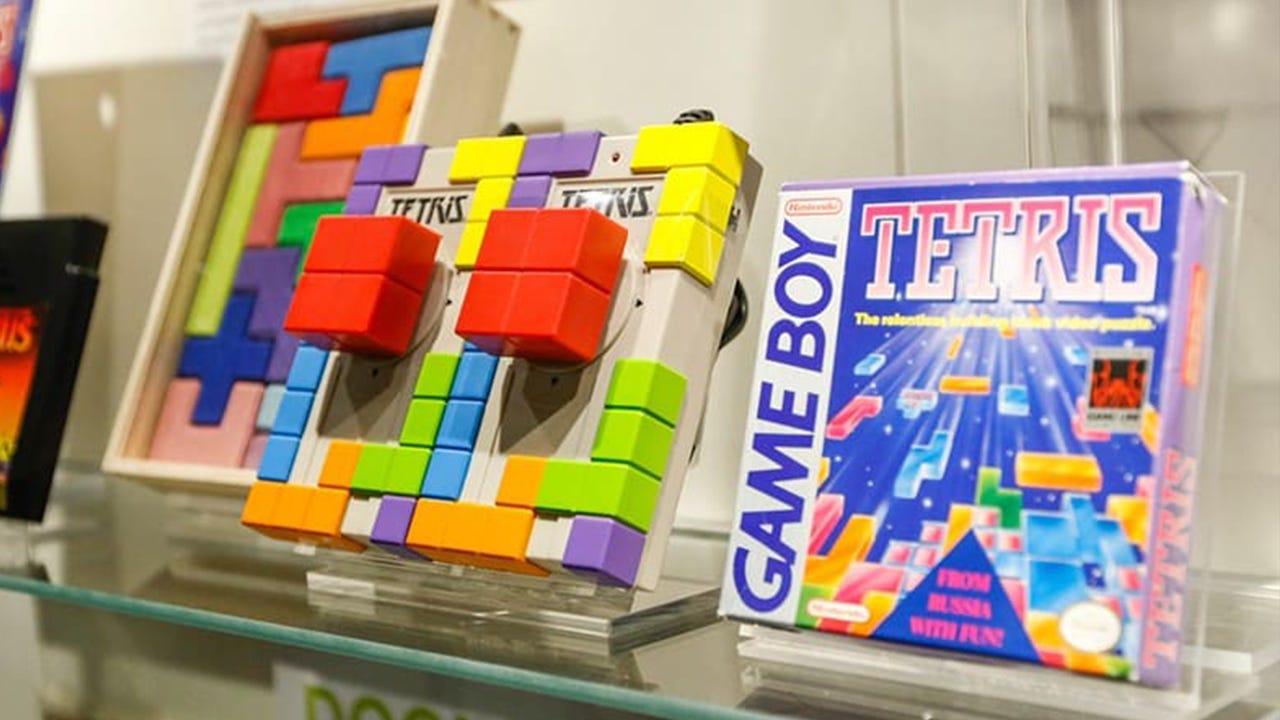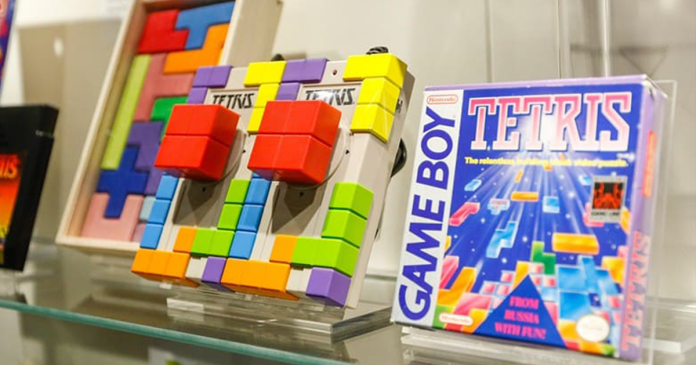
Image via The Strong Museum
The University of North Carolina was awarded $150,000 in August 2024 to research the ways in which libraries could collect, preserve, and provide access to digital video games via a National Leadership Grant from the Institute for Museum and Library Services (IMLS). But in April 2025—while research was actively ongoing—that funding was suddenly rescinded as a result of the Trump administration’s sweeping cuts to science, arts, humanities, and museum funding.
Colin Post, assistant professor of information, library, and research sciences at the University of North Carolina Greensboro, told Game Developer that he was able to complete a “phase of exploratory research” before losing funding. He had also intended to use the grant to fund a virtual conference so that indie game developers and librarians could meet and discuss the project.
Those plans are now in limbo. It’s just one example of how the Trump administration’s shocking cuts are having a direct impact on video game research and other related programs.
It’s impacting researchers, game developers, and institutions—creating tricky situations that risk projects folding altogether.
Funding cuts leave video game libraries at ‘critical juncture’
The cuts also impact grants and funding from the National Endowment for the Humanities (NEH), the National Science Foundation (NSF), and the Department of Health and Human Services (HHS)—all of which have funded vital research and programs across the video game industry. An NSF grant for a program at Arizona State University designed to help latinx students create games about climate change was axed, and a group of researchers looking into creating more equitable workplaces for marginalized game developers had their funding pulled just before the project was set to conclude, according to a list of terminated awards published by NSF.
Related:Sony unveils unconventional ‘chronological’ story mode for The Last of Us Part 2
Public health research funded by the HHS, including projects looking at game-based social networking and sexual health as well as a game studios’ research into improving STEM learning environments, were all cut, according to a list of canceled grants. Though the United States doesn’t have as robust of a funding program for games as other regions such as Australia or Canada, the National Education Association has financed projects including an orchestral performance and interactive presentation based on Journey at the Brooklyn Academy of Music, the Games for Change Festival, and the HeArt Project from artworxLA—which helps teach kids game design, among other things. Game Developer reached out to these institutions to confirm the status of their projects and grants, but didn’t hear back before publication.
Related:Onimusha: Way of the Sword sees the classic series renewed with Capcom’s latest technology
Preservation is one of the largest challenges facing the video game industry. As studios and publishers move away from physical media; libraries play a key role in helping to preserve and catalog aging software, but often struggle to compile digital video games because they lack “institutional licensing comparable to the platforms that libraries work with to collect ebooks and digital video,” according to Post. Another institution, University of Washington’s Game Research Group, lost funding when its National Leadership Grant from IMLS was cut. That project, in collaboration with the Video Game History Foundation and The Strong National Museum of Play, was launched in 2024 to “improve the accessibility of critical video games in cultural heritage institutions for educational purposes.”
“Libraries are at a critical juncture right now where we risk losing the ability to continue developing the video game collections that we’ve built over the past decades,” continued Post. “Games belong in both public and academic libraries for recreation and for the serious study of games, but libraries will not be able to continue this work if we don’t adapt to the current game distribution ecosystem.”
Related:Mike Bithell’s journey from Auteur to Studio Boss – Game Developer Podcast Ep. 49
The funding was essential to shift from researching to actually developing “concrete tools” for librarians and game developers to use. “Now, I only have my soapbox to talk about how important digital game lending is without the ability to do much more about it,” Post said.
Researchers claim Trump cuts are part of ‘ongoing culture war’
In May, the Strong National Museum of Play announced that two of its federal grants, from the National Endowment for the Humanities and the IMLS, respectively, were cut as part of President Trump’s gutting of these organizations. The Strong National Museum of Play’s grants were just two of thousands suddenly rescinded by the government.
One of those grants from the IMLS, which according to Strong Museum communications director Shane Rhinewald will be used in a preservation project for a “toy catalog collections initiative,” was temporarily reinstated by a court order in May 2025. The funding will go directly to the salary of the person hired to archive toy catalogs, a crucial task for the museum. But the other, earmarked for a new exhibit called “Beyond the Buzzer: Game Shows in America,” has been cut. The museum plans to proceed with both projects, but scope, timing, and size is in limbo.
Jon-Paul Dyson, Strong Museum senior vice president and director of the International Center for the History of Electronic Games, told Game Developer that the museum receives around 700,000 guests a year and explained its funding comes from admissions and memberships, plus a trust that supports the museum. The grants aren’t essential to the day-to-day functions of the museum, but enable it to take on special projects.
“This work of preserving games, celebrating games and speaking about their importance, not just to people who love video games, but to people more broadly, even those who don’t consider themselves gamers, is really vital work,” Dyson said.
Rabindra Ratan, associate professor at Michigan State University’s Department of Media and Information, told Game Developer that he and his team were awarded $1.6 million by the National Science Foundation’s Future of Work program in 2021 to research and develop a program to “reduce issues of Zoom fatigue and other types of gender and race inequities in the games industry related to virtual meetings.” Most of that money was spent on the research over the years, but when the grant was rescinded this year, they lost an unspent $200,000 they intended to use to finish the project.
“We were in the home stretch,” Ratan said. “The main goal of the home stretch was to get our work out into the games industry.”
Ratan and the team did all the research and built out a virtual world that was designed to be a more effective meeting space — taking into consideration gender and racial disparities in the industry. Now, they no longer have the funding needed to fully realize their vision. The platform is publicly available still, and Ratan intends to put the research materials up online, but there’s no longer the budget to pay students and professors to tie up the loose ends of the project.
“Our mission was to help promote equity in the games industry, and like in many industries that are impacted, the cancellation is part of what we see as an ongoing culture war against people who are trying to reduce systematic inequalities in those fields.”
Public development grants in the U.S. have become an endangered species
Rebecca Bria, assistant anthropology professor at The University of Texas San Antonio’s College of Liberal and Fine Arts, told Game Developer her virtual reality game project, Paccha, was “severely impacted by the rescinding of the NEH grant shortly after the work began.”
Paccha is a virtual reality adventure and puzzle game in which players act as a student archaeologist investigating different areas of the Peruvian Andes. It’s co-developed by Bria and game developer and artist Bruce Carlisle. They explained they spent two years conceptualizing the game “while conducting preliminary research, digitizing ancient objects and spaces, and doing outreach in Peru to ensure community buy-in and active collaborations with descendant populations.” Planning and applying for grants took two years, but they were eventually awarded $100,000 for prototyping from NEH. The grant finally arrived in February 2025. They were able to complete just two months of work before the Trump administration pulled the plug.
“Grant opportunities to develop a game like ours — through NEH or elsewhere — are rare and competitive,” Bria and Carlisle said. “Our award comes from the NEH program called ‘Digital Projects for the Public,’ which is extremely competitive. They have an intense peer review process, require an advisory committee of humanities scholars as well as partnerships with museums/universities and communities, and they often require applicants to submit multiple submissions and revisions to win. Unfortunately, not only did DOGE rescind our award but the NEH website indicates that the agency was made to completely discontinue the Digital Projects for the Public competition moving forward.”
They said the NEH award was “vital” for the project to be able to “accurately and ethically present the people and artifacts of the Indigenous Andean past.” The prototyping grant was the first step in a long process in acquiring future funding to produce the game. “Losing the award is devastating,” they said. “Now that this NEH funding pipeline from Prototyping to Implementation has vanished, our trajectory for completing the game is also halted.”
Bria said the cuts stalled research, put partnerships (like one with the San Antonio Museum of Art) on hold, removed “financial support for community collaborators in the Peruvian village and archaeological site of Hualcayan where our game is set,” and ended payments to game developer Carlisle, who is no longer able to work full time on the title as a result.
Now, like other researchers and institutions impacted by the sudden axe to their already-awarded grants, they’re looking for different ways to fund the game, be it through private funding or via the NEH program being reinstated. It’s a baffling and devastating blow to projects, and a decision that will surely impact the study of video games—something that could have lasting impact.
“The video game industry is at the forefront of experimentation and exploration in technological developments in many realms,” Ratan said. “By limiting research in this industry, it is limiting science as a whole. There’s a slightly more direct negative consequence here in hindering progress in the games industry, namely being that progress in the games industry leads to other industries.”
